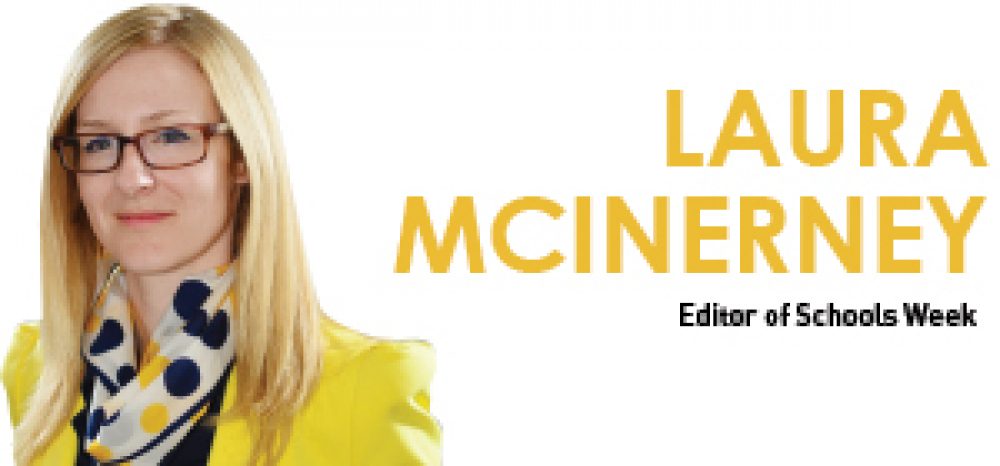Spending the summer worrying about the return of grammar schools is like worrying the NHS is about to reintroduce frontal lobotomies.
Lobotomies, like grammars, were a miracle cure of the 1940s. At their peak more than 1,000 people a year had metal spikes pushed into their skulls, swished around, and withdrawn, in the belief that severing the front of the brain from the back would solve mental ills.
The gruesome procedure was popular because it was quick, easy and no one could think of anything better. Also, no one bothered to find out the consequences. Only in retrospect do we know that about a third of patients did not improve and a third suffered serious impairment. Even those who seemed better afterwards were “totally ruined as social human beings”, according to neurosurgeon Henry Marsh.
Grammar schools are not harmful to those who enter them. And no one in a grammar school is trying to do a bad thing.
But the evidence is that they make inequality worse. From 1959 when the Crowther report showed the number of poor children shut out of grammars, right through to the most recent statistics from journalist Chris Cook, who has unequivocally shown that poor kids in grammar areas do worse than in non-grammar areas, the evidence is hard to deny.
As with lobotomied patients, the one or two who are ludicrously happy as a result of the policy does not mean that it is a good policy.
Still, as this column predicted before Brexit, we find ourselves yet again facing the grammar debate.
It’d be funny if it wasn’t such a dispiriting waste of time.
No one believes the House of Lords will pass laws allowing new grammars to open. Which means the only way to even attempt it is a massive kerfuffle to pass the laws, endlessly moving newly negotiated rules, back and forth through parliament for years.
The alternative, put forward by the new head of the education department Jonathan Slater, is waiting for grammar schools to prove they don’t cause damage. That’s a good idea, because it means the law probably won’t happen. But it also means a huge amount of tracking and monitoring just to prove something already known.
Here’s an idea. How about we don’t do that? How about the politicians, and the civil service, use their time and resources dealing with the following:
The new national funding formula
Schools have been waiting for fairer funding since 2010. An entire secondary school cohort has come and gone since then. They are still waiting.
Sort out the Standards and Teaching Agency
The new primary tests are not working. A lot of the reasons for that track back to the STA. Endless fiddles with guidance, the leaked papers, the baseline assessment botch-up and now the primary school moderation process look patchy – at best. Tests don’t will themselves into existence, though. Politicians need to figure out why these things are going wrong and stop them.
Teacher recruitment
As revealed back in June, the government has delayed the new National Teaching Service. Universities are struggling to fill courses. School Direct is still unattractive. Teacher pay is falling behind graduate pay in other sectors. At the same time, the baby boom is working its way through primary and isn’t about to stop. There will be an extra 750,000 children in schools by 2025, according to official government forecasts, but there’s no coherent plan for who will teach them.
Fiddling about with grammar schools is the policy equivalent of stressing about which kids should be placed in a punctured lifeboat as everyone else goes down on a sinking ship.
Politicians in the 1940s had an excuse for their policy mistakes. They didn’t know better. This time, they don’t have that excuse.
Laura McInerney is Editor of Schools Week







In Sweden the emergence and consolidation of ‘Free Schools’ has resulted in development of an educational advantage compared with the ‘normal state schools’. This is not because of social/wealth selection since no discrimination exists – if parents apply to a given school the school must offer the child a place or put him/her on their waiting list – but because of top teacher migration to the Free schools that tend to have more rigorous academic discipline, encouraged by close parent association with the schools’ educational policies. UK grammars are similar to the Free Schools but differ in one critical respect. In the Swedish system entrance is not based on performance in some arbitrary test but is open to all. This can of course result in enormous queues where some children may wait 2-3 years for admission. Expansion of the UK grammar system will cause a social divide unless admission is based on ‘potential’ and the new schools are spread evenly through advantaged and disadvantaged areas with target numbers from low income families rigorously applied, as with (but better administered) admissions to Oxbridge. If the current education secretary and her PM had looked at the work of Carol Dweck on the Growth Mindset they would understand that academic conclusions based on performance differences at a particular age are specious and more importantly, often irreversibly damaging to the developing child.
It stretches belief that our PM’s first major policy announcement is on, er, the expansion of grammar schools. A major diversionary tactic, a sop to Brexiteer MPs and a huge disappointment.
Totally agree. This is simply “virtue signalling” to keep the right of the party on board while the gov necessarily drags its feet over Brexit. If it draws opposition from Labour, the unions, the professions then all the better to circle the wagons.